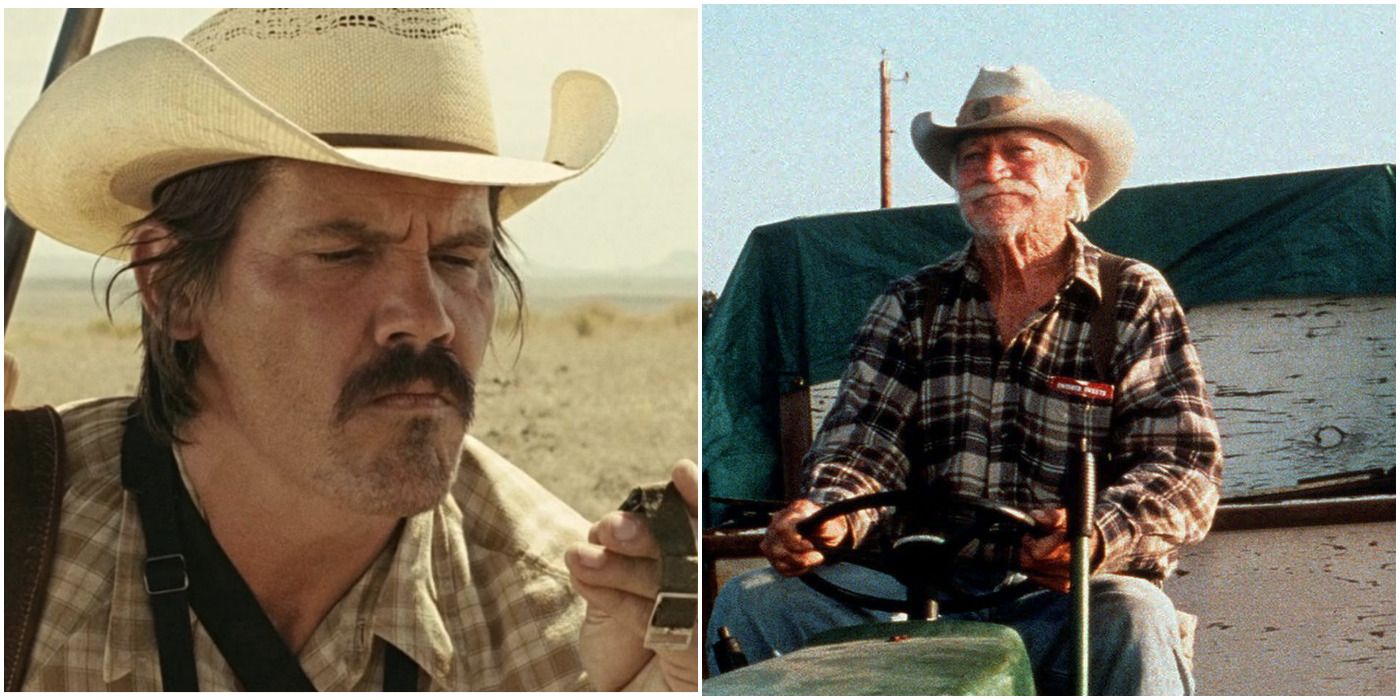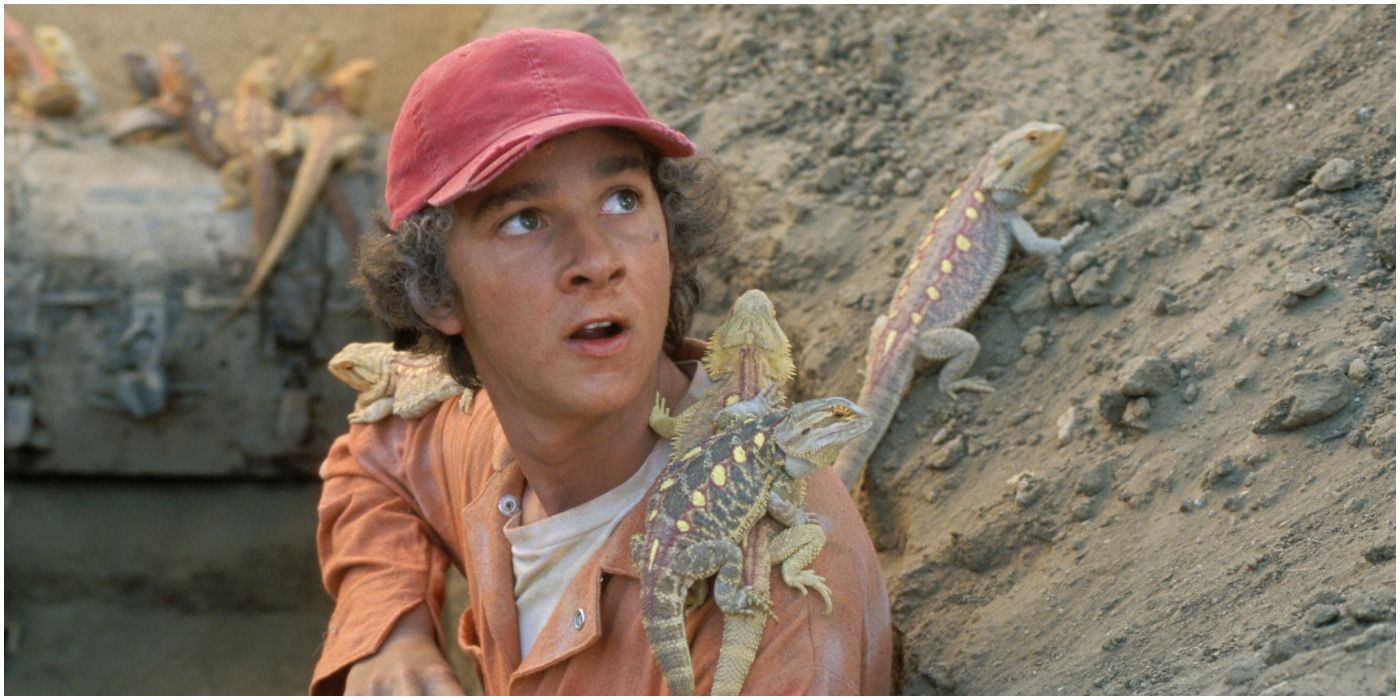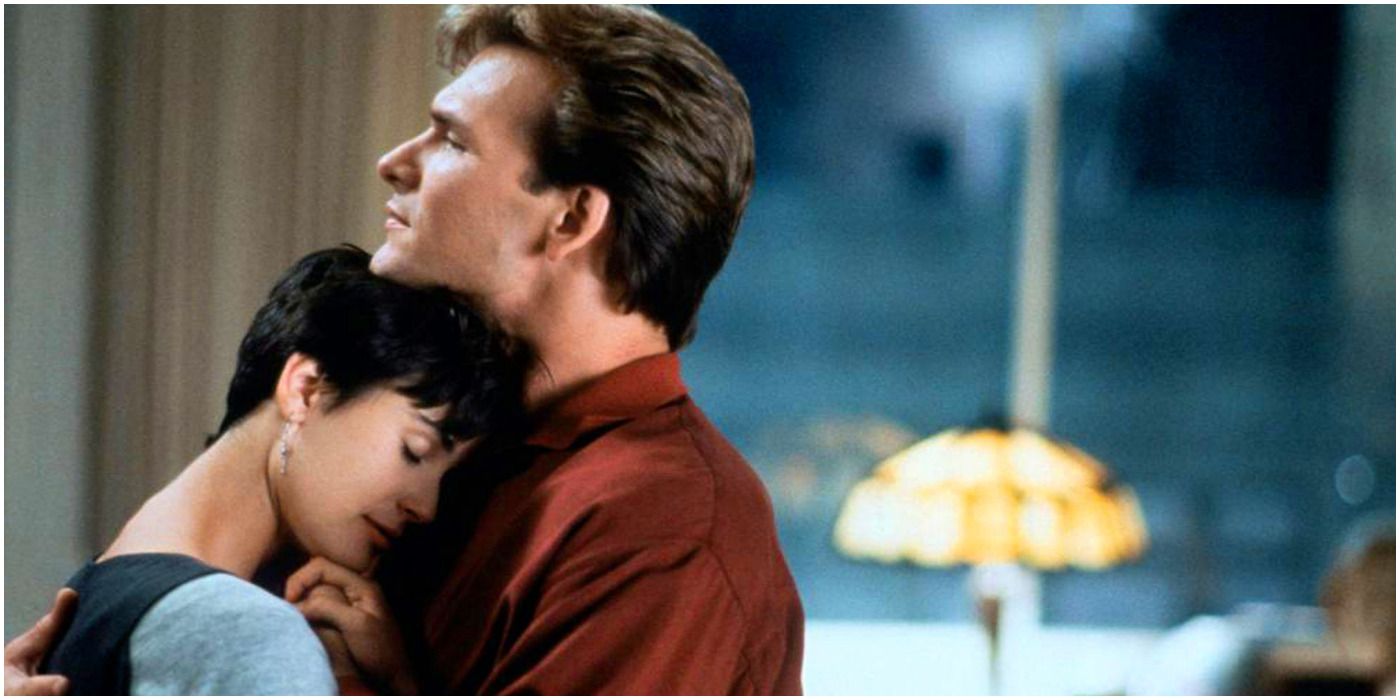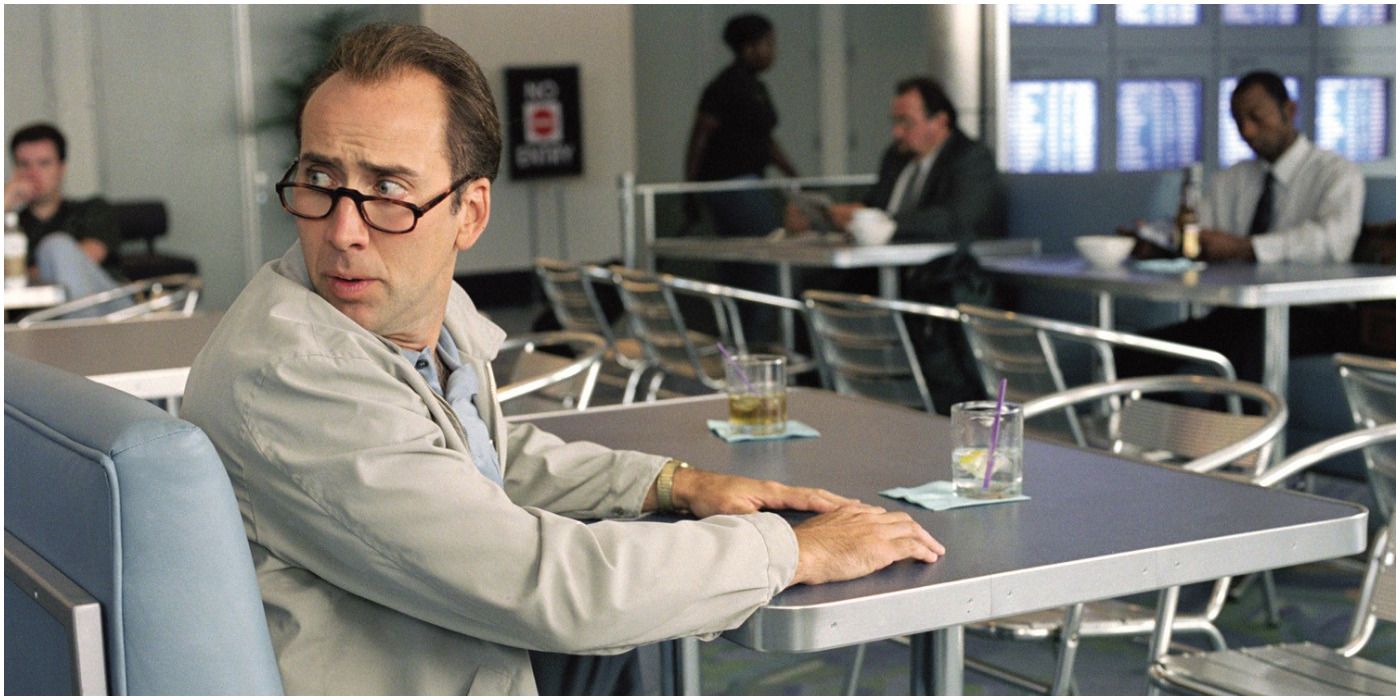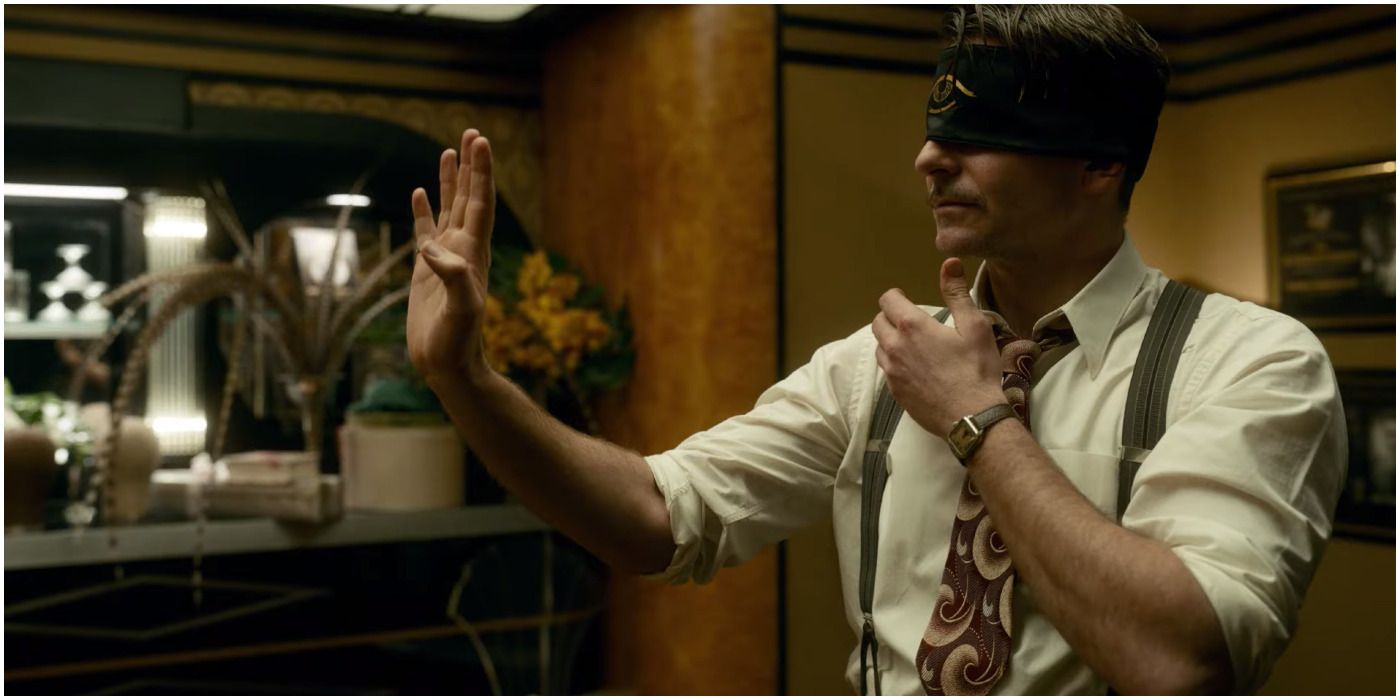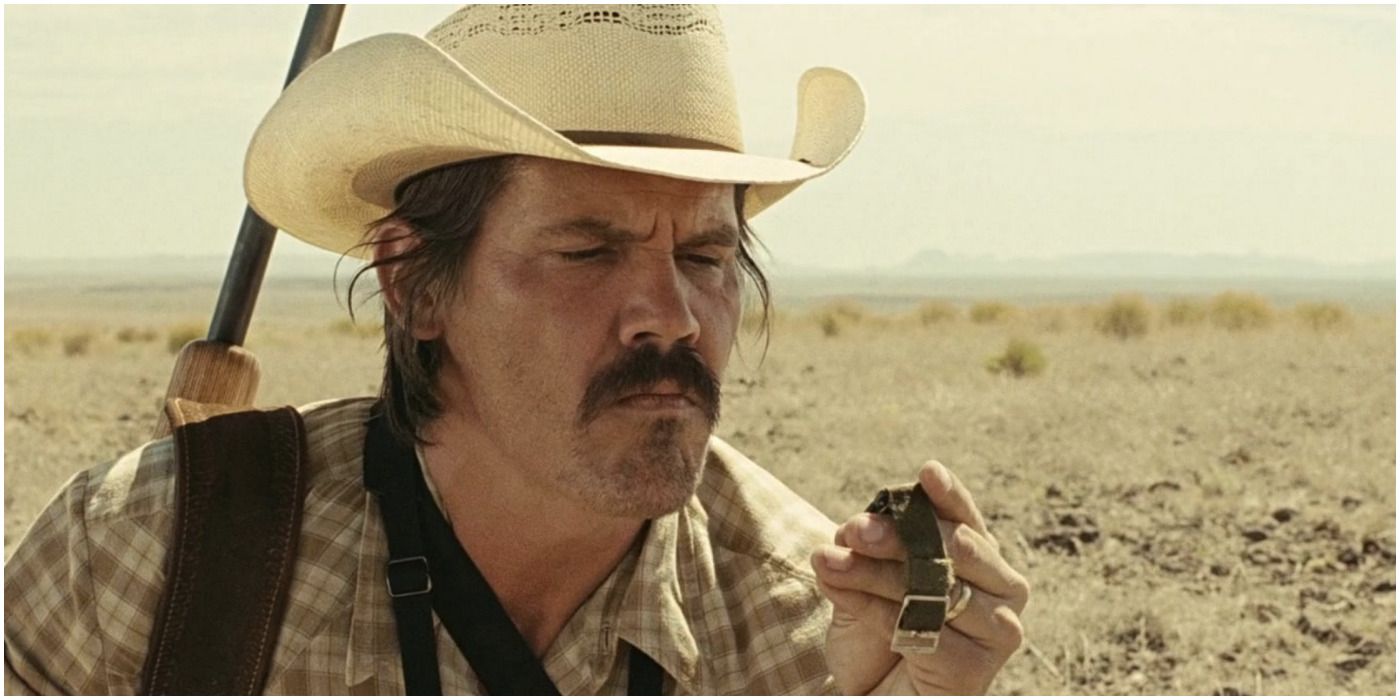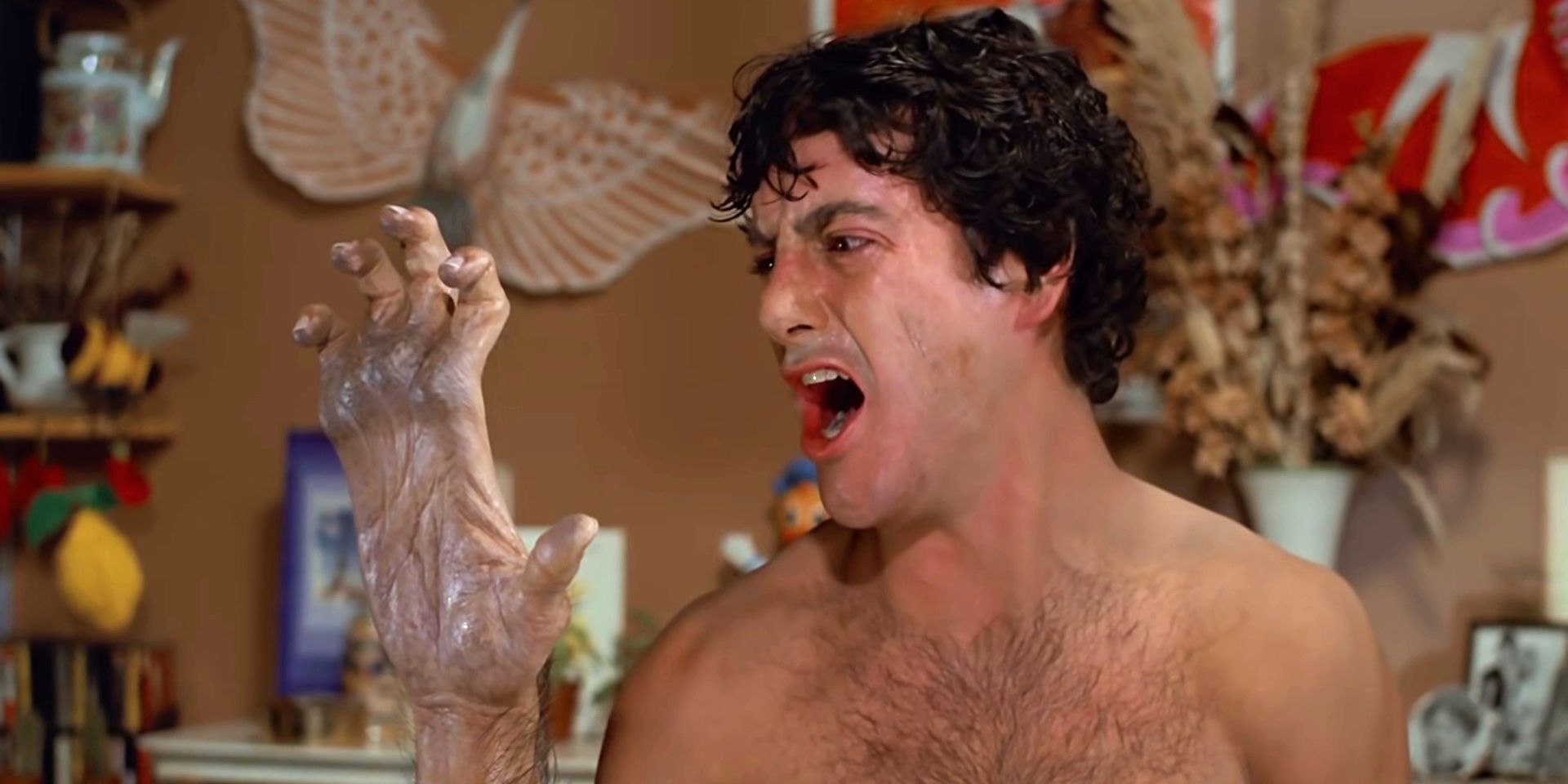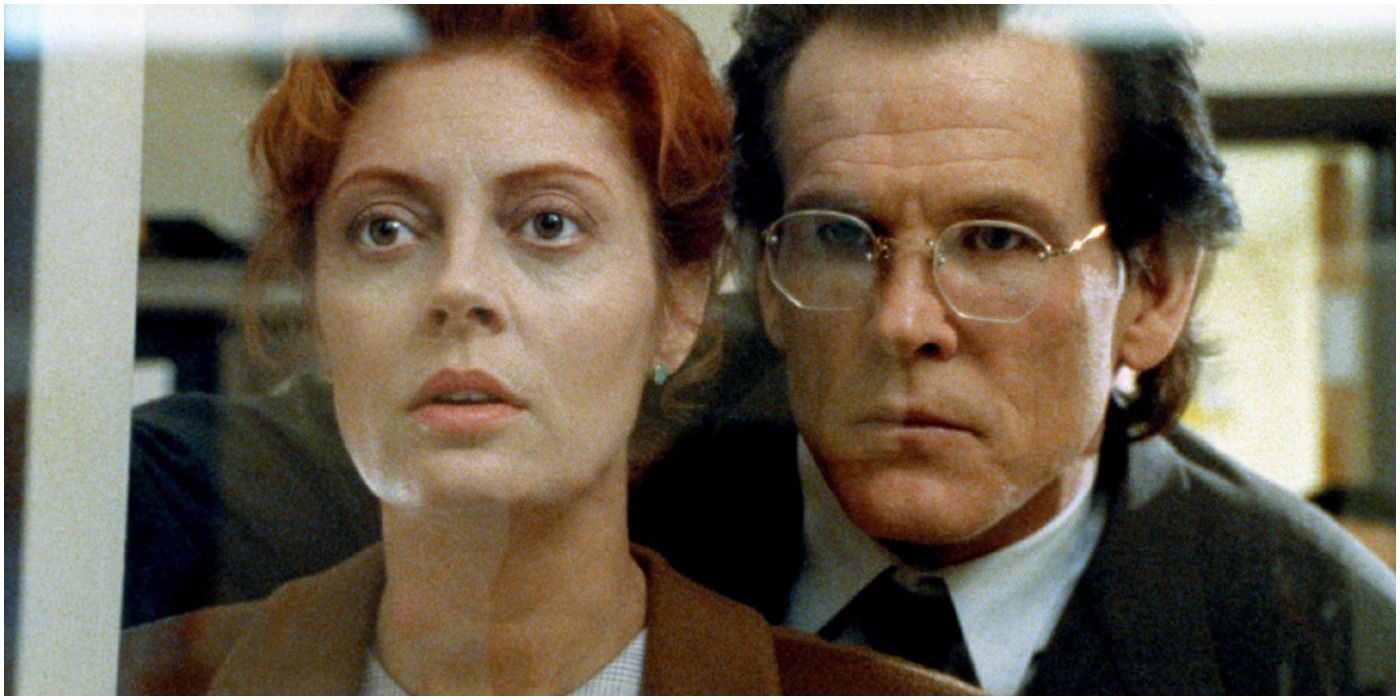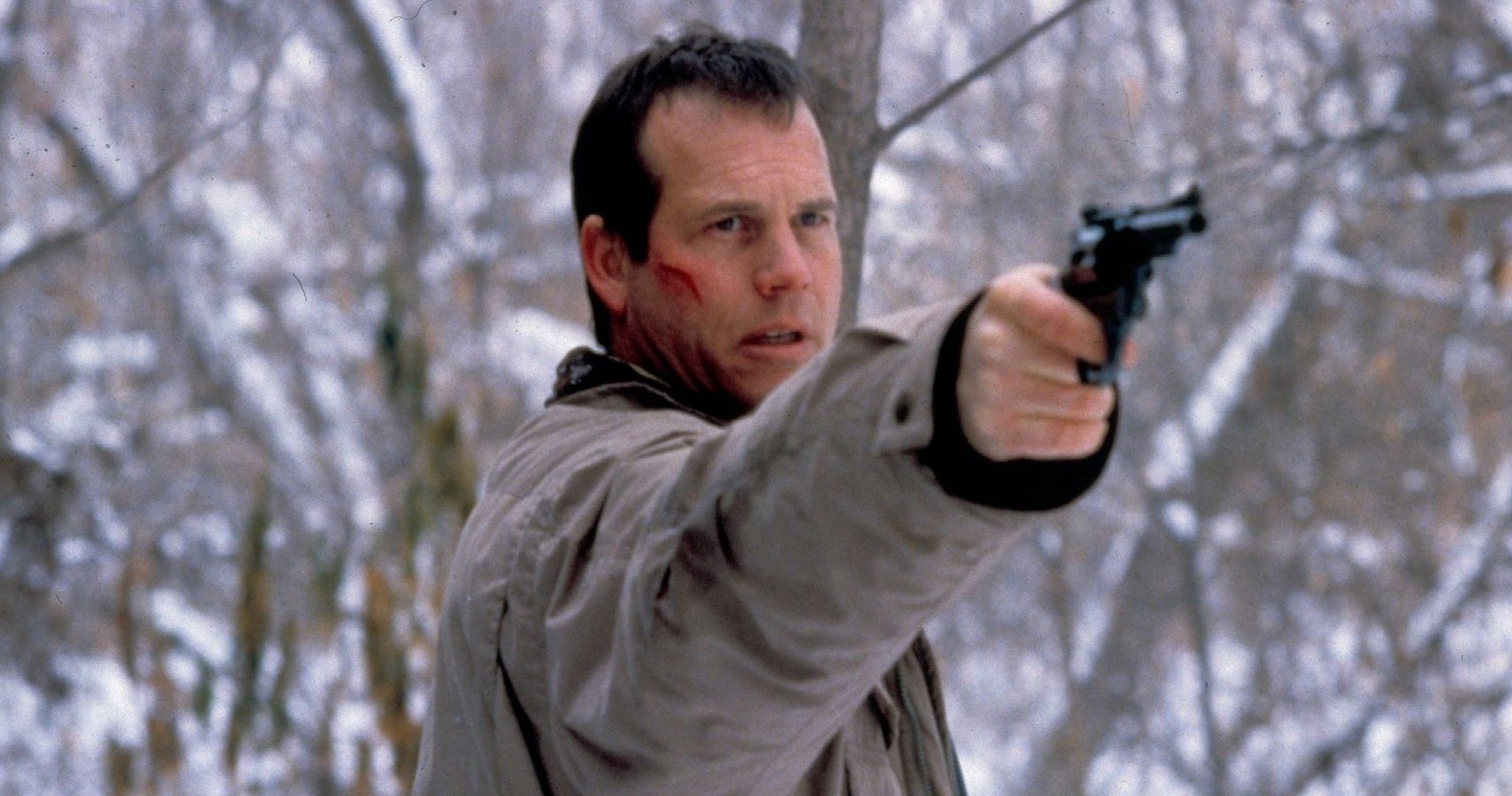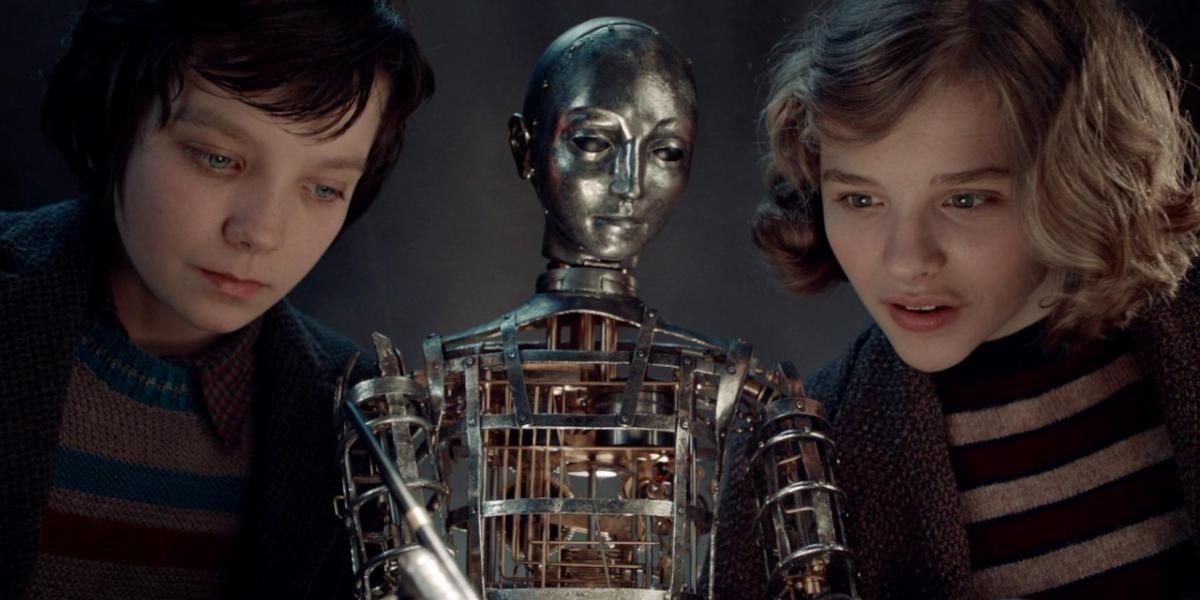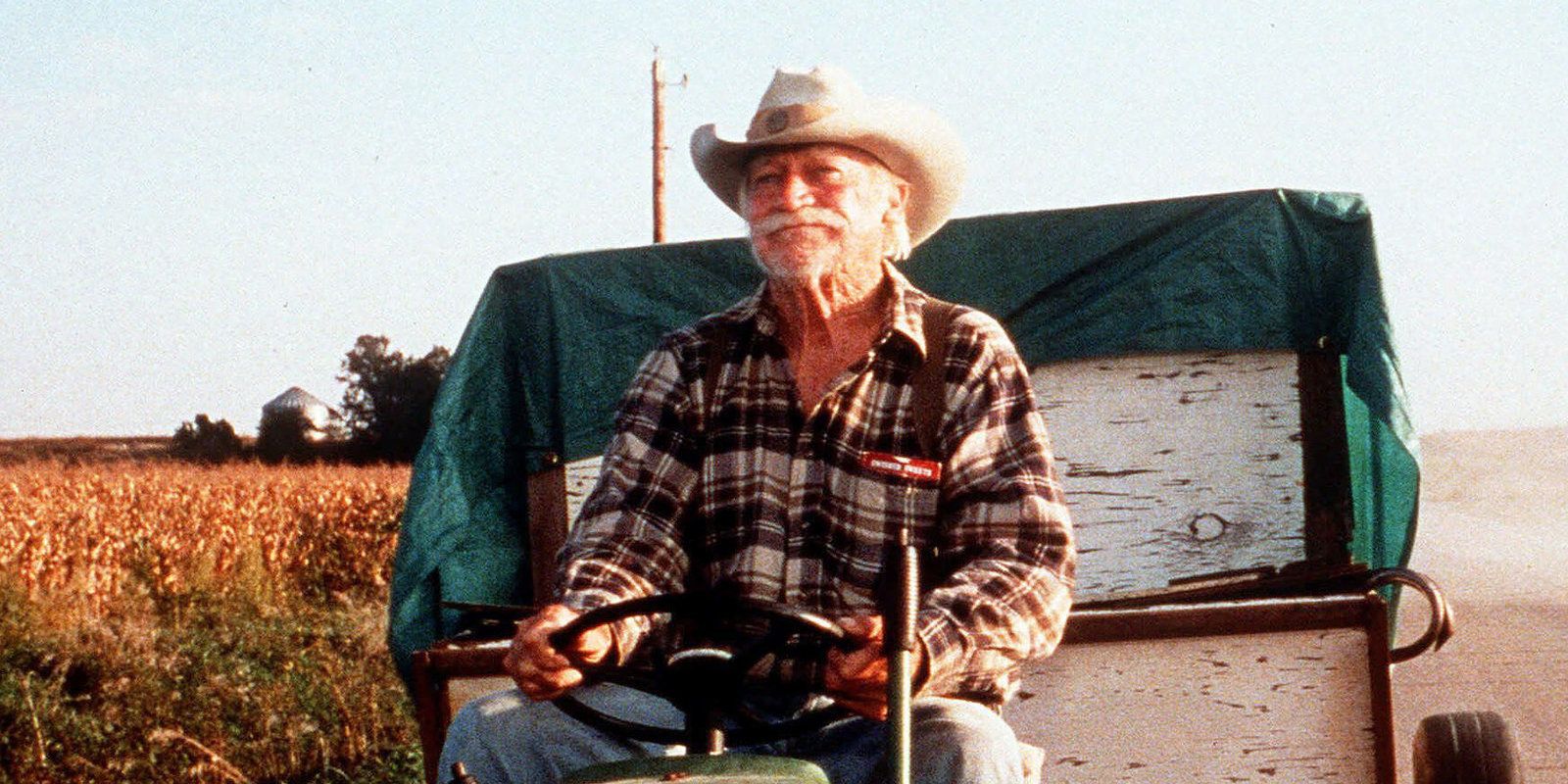It's generally accepted that in order to be an auteur, a director must have a strong style that's immediately recognizable as "theirs". 2022 has so far seen some very clear examples of this phenomenon, but perhaps the clearest one is David Cronenberg's upcoming body horror film Crimes of the Future, which looks to be right up his alley.
But there have been plenty of times when a filmmaker known for sticking to a particular style or genre goes in a completely new direction. Sometimes a drastic change doesn't pay off, but when it does, the resulting movie can be a work of genius that stands out as one of the director's best.
Holes (Andrew Davis)
Louis Sachar's Holes is a beloved coming-of-age novel that's good for the whole family, so it must have seemed odd to find out that directing duties on the movie were given to Andrew Davis of Under Siege and The Fugitive. While Davis in his heyday was a solid director, all of his well known movies were action thrillers, which could sometimes get quite violent.
Despite being out of place in his filmography, Holes stands out alongside The Fugitive as one of his best films, being smart, funny, and even dramatic when it needs to be. Both the present-day story of wrongfully accused Stanley Yelnats and the flashbacks revealing how Camp Green Lake came to be make for good entertainment that's a cut above the typical young-adult film.
Ghost (Jerry Zucker)
As one of the members of the famous Zucker, Abrahams, and Zucker trio, Jerry helped bring hilarious spoofs like Airplane! and The Naked Gun to the screen. However, his solo debut Ghost, a romantic fantasy film about how love carries on even after death, couldn't have been more different from the wacky comedies he made his name on.
Fortunately, the gamble paid off, with Ghost being a huge critical and financial success, even becoming one of the few romantic movies to win an Academy Award for Best Original Screenplay. Part of what makes the movie so memorable is the chemistry between Patrick Swayze, Demi Moore, and Whoopi Goldberg, who all play their roles brilliantly and make a story featuring ghosts, psychics, and demons feel believable.
Matchstick Men (Ridley Scott)
Although it wasn't a box office hit, Matchstick Men is a very good heist film, featuring one of Nicolas Cage's most underrated performances as con man Ray Waller, who is sympathetic and wildly over-the-top in equal measure. It's also a shock coming from Ridley Scott, a smaller, more low-key movie to contrast against his big budget epics.
Matchstick Men is perhaps best known for Cage's meme-worthy lines during his panic attacks, but viewers watching the movie for the first time might be surprised by its intricate plot and how it treats phobias and mental disorders. They're not played for cheap laughs, and the film deserves credit for playing OCD and tourette's syndrome more realistically that most others at the time.
Nightmare Alley (Guillermo del Toro)
A visionary in fantasy filmmaking, Guillermo del Toro's most recent film is also arguably the most atypical in his whole filmograpy. Nightmare Alley is a period thriller about a carnival psychic conning his way to fame and fortune, and although it features plenty of macabre imagery, its only fantastical elements are a few parlor tricks.
Although Nightmare Alley was a commercial failure going up against Spider-Man: No Way Home, it's still a great homage to '40s noir films that feels authentic and genuine. It pulls no punches in portraying protagonist Stan Carlisle as a scumbag out for a quick buck, and the story has twists and turns that make the road to its tragic conclusion an engaging slow-burn.
No Country For Old Men (Coen Brothers)
The story of a man on the run from a ruthless killer after the former takes a mysterious suitcase full of money, No Country for Old Men is a brilliant neo-western with an appropriately grim tone and great performances, especially from Javier Bardem. It's also a drastically different film from typical Coen brothers fare, trading their trademark black comedy for unrelenting bleakness.
While Coen fans knew they could do great work with stories of hapless criminals played for dark laughs, No Country for Old Men feels almost like a deconstruction of their usual work. The script, adapted from Cormac McCarthy's acclaimed novel, reads almost as if it plopped one of their characters into the real world, where crime stories almost never end happily.
An American Werewolf In London (John Landis)
John Landis gifted audiences around the world with some of the best comedies of the late '70s and '80s, with Animal House, The Blues Brothers, Trading Places, and Coming to America all being hugely popular movies that are still loved today. He's also the man behind An American Werewolf in London, a horror comedy with a firm emphasis on the former.
It's a testament to Landis' ability as a director that the film can both have scenes of David's horrific transformation, and a darkly funny sequence of him hallucinating talking to all his victims, and they both work perfectly, with neither feeling at all out of place. It proves that sometimes the funniest people truly are the best at crafting scary stories.
Lorenzo's Oil (George Miller)
George Miller's films generally come in two varieties: post-apocalyptic action movies like Mad Max, or family adventures like Babe: Pig in the City and Happy Feet. But arguably his most underrated movie is Lorenzo's Oil, a hard drama about two parents desperately searching for a cure for their son's almost certainly fatal disease.
Lorenzo's Oil's was a box office disappointment, but those who saw it loved it, leading to Oscar nominations for Susan Sarandon and Miller himself. What makes the film work so well is that, while inspirational, it never gets too sentimental, realistically showing just how horrible a condition like ALD can be, and the emotional toll it takes on a patient and their family members.
A Simple Plan (Sam Raimi)
With Sam Raimi back in the spotlight with Doctor Strange in the Multiverse of Madness, fans are probably celebrating by revisiting his previous superhero or horror movies. While the Spider-Man and Evil Dead trilogies are certainly essential viewing, hardcore Raimi fans shouldn't skip A Simple Plan, a crime thriller that shows off the auteur's surprising range.
A Simple Plan tells the story of brothers Hank (Bill Paxton) and Joe (Billy Bob Thornton), whose efforts to keep a boatload of missing money lead their family to destruction. Among its best qualities are its great performances from Paxton and Thornton, as well as its cold, snowy Minnesota setting that effectively adds to the dark, cynical tone.
Hugo (Martin Scorsese)
While Martin Scorsese is often considered the king of gangster movies, he's one of the most versatile directors in Hollywood, and Hugo is perhaps the clearest example of his impressive range. Following Parisian orphan Hugo Cabret as he attempts to rebuild his late father's invention, the film tells a heartfelt story that is often considered one of Scorsese's best.
In addition, Hugo is also a love letter to the history of cinema from one the field's most attentive students. Filmmaking pioneer Georges Méliès is an important character, and the story of his rise, fall, and rediscovery is a tragic but uplifting tale for all who hold movies close to their heart.
The Straight Story (David Lynch)
Of all the times a director went out of their comfort zone, David Lynch's The Straight Story might be the most dramatic. Coming from a filmmaker known for some of the most surreal narratives ever brought to screen, the simple tale of a man who taking a road trip on a tractor to make amends with his estranged brother is shocking in how well it works.
While hardcore Lynch fans may miss his signature weirdness, The Straight Story is a loving portrait of life in the often forgotten rural midwest. It's also a wonderful showcase for Richard Farnsworth, whose terminal cancer at the time of production only makes his dedication to his craft more impressive.

